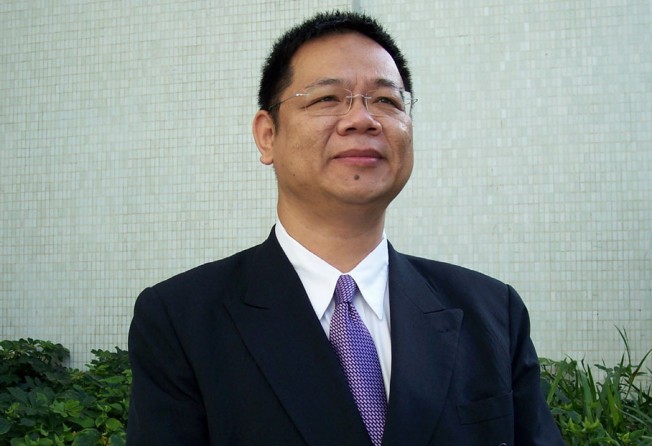
City has taken 'wrong track' on mental health
Council wants a policy commission set up, and more emphasis on community-based treatment

The government is being urged to set up a mental-health commission to manage the problems of long-term patients and fill the gap left by the present lack of an overall strategy.
The call from the Hong Kong Mental Health Council said current policy concentrated on medical services but neglected community-based ones.
"The government is not on the right track," council convener Dr Chan Chung-mau said. "The lack of co-ordination between medical treatment and follow-up support for patients and their families makes the patients' journey to recovery very difficult."
Psychiatrists have called repeatedly in the past for a long-term mental-health policy, especially after a series of family tragedies and violent episodes involving the mentally ill.
The council plans to submit a paper to the government next month urging the establishment of a committee or a commission to make overall arrangements for mental-health policy.
They suggested the committee should include representatives from the Food and Environmental Hygiene Department, the Hospital Authority, doctors, mental patients and their families as well as non-governmental organisations.
Chan said the council conducted a public consultation with more than 200 involved organisations last year, and most agreed more co-ordination among mental-care services was needed.
Hospital Authority figures show that the number of people seeking psychiatric services has risen steadily in the past few years. From April 2010 to the end of March 2011, some 176,100 patients received mental treatment from the authority. The number is now approaching 190,000.
In his latest policy address, Chief Executive Leung Chun-ying devoted only one paragraph to mental health, mentioning the provision of new-generation drugs and boosting manpower for patient services.
The government in 2010 announced the planned establishment of 24 Integrated Community Centres for Mental Wellness in the city's 18 districts. It also introduced a case-management programme under the Hospital Authority, to handle high-risk patients after they went home.
By the end of last year, the case-management programme had been implemented in 15 out of 18 districts. But staff have been complaining of a lack of suitable premises or of a clear idea of who they should be helping.
He said this and the absence of an integrated strategy and co-ordination among government departments made the available services less effective.
Psychiatrist Dr David Tsang Fan-kwong said that he was afraid the media's coverage of mentally ill patients using violence had left an impression that all mental patients were dangerous.
Some posed a risk, he said, but if their illness was discovered early enough, and was properly treated in time, the danger could be avoided.
Courts cases of mental patients assaulting people are reported from time to time. A High Court judge sent a 31-year-old schizophrenia patient to Sim Lam Psychiatric Centre last month after the man admitted seriously injuring two female neighbours who were chatting outside his home in Tin Shui Wai.
Another man who admitted using a paper cutter to wound at least three people in Kwun Tong district had his hospital order extended from one year to two years in the District Court a few months ago.
Psychiatrist Dr Ting Sik-chuen said the government proposed a few years ago to legislate for community treatment orders - mandatory non-hospital care for patients whose conditions are not severe enough for a court-imposed hospital order - but that the discussion had cooled down since 2012. He said it was time for the government to discuss the issue once again.